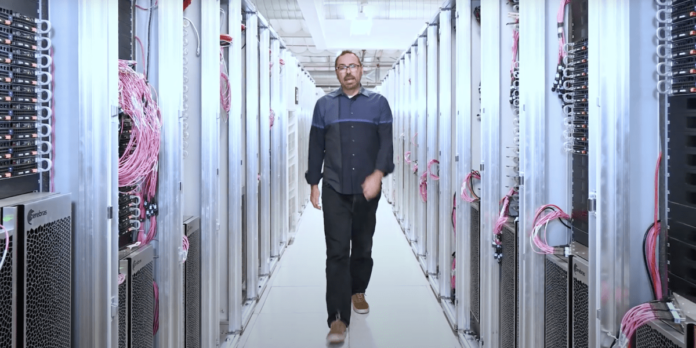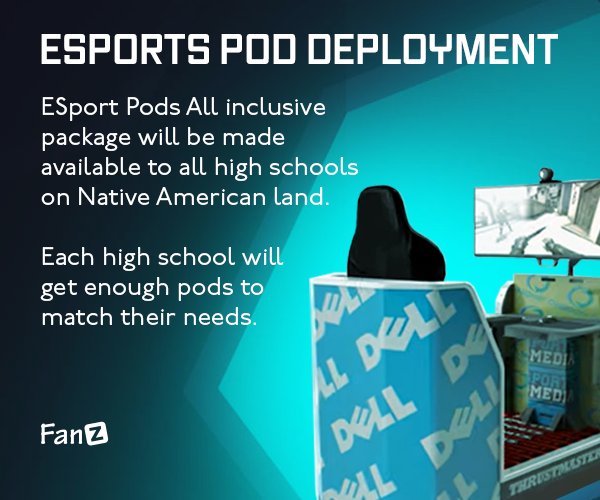Good morning. I had the pleasure of co-hosting a Fortune x ServiceNow dinner last night in San Francisco and was struck by how CIOs are thinking about artificial intelligence at the moment.
A Zagat-style summary to start your day:
What AI models “are doing with my data” is the top related concern for most, and it’s “hard to hire AI talent” as the landscape rapidly evolves. That can be “intimidating” because “no one knows everything” and then “it all changes tomorrow.” The future will have “fewer jobs” for people “who don’t think critically” because AI is “enabling us to become more creative.” We need less scary “autopilot” AI and more useful “copilot” AI and workers who “know what questions to ask.” Education systems in this Intelligence Age must consider: “What will be 10 minutes into the future five years from now?”
The news below. —Andrew Nusca
P.S. A reminder that I’m moderating a Fortune x Accenture virtual conversation tomorrow about the ROI of generative AI. A phenomenal group of tech leaders will speak. Read more and join us—it’s free.
Want to send thoughts or suggestions to Data Sheet? Drop a line here.
AI chipmaker Cerebras files for IPO
Is that an IPO on the horizon? And not just any IPO—but an AI IPO?
Cerebras, the AI chipmaker positioning itself as a rival to Nvidia, has filed its S-1, marking the start of its journey to go public. On the face of it, for the exit-starved private markets in the throes of the AI boom, this can only be good news.
On a high level, Cerebras is a rocketship. Last year’s revenue came in at $78.7 million, up from $24.6 million the year prior. But losses are large: $127.2 million in 2023 versus $177.7 million in the previous year.
A deeper look at the filing tells a complex story. Cerebras, for example, is heavily dependent on a single customer, which accounted for a staggering 87% of its revenue in the first half of this year. (That customer was G42, a Abu Dhabi-based AI company.)
Cerebras is clearly banking on a strong future for AI and demand for chips. And a home-run debut for Cerebras could spark a wave of feverishly-hoped-for tech IPOs, which have been in short supply in recent years. —Allie Garfinkle
Microsoft gives its Copilot personal assistant a zhuzh
Like The Devil Wears Prada’s Andy Sachs after Nigel gets to her, Microsoft has given its AI-powered Copilot personal assistant a glow up.
The new Copilot is more personal, more capable, and more accessible than its predecessor thanks to a host of upgrades Microsoft announced Tuesday for Windows users.
Among them is Copilot Vision, which processes the page you’re viewing (in the Edge browser, naturally) so it can answer questions about the content or help you find things. There’s also Copilot Voice, an improved spoken language layer (with four voices) so you can chatter to it the way you naturally would.
Microsoft also upgraded Copilot’s reasoning so it can think through more complex queries, such as difficult math problems, thanks to a new “Think Deeper” feature, which Microsoft told TechCrunch is powered by “the latest models from OpenAI, fine-tuned by Microsoft.”
Microsoft AI chief Mustafa Suleyman told WIRED he’s excited about the “emotional support” aspect of this release. So by all means channel your inner Miranda Priestly. You know how it thrills me. —Jenn Brice
Sonos throws a Hail Mary pass
Following “one of the most disastrous software releases by any consumer technology company in recent memory,” according to Bloomberg Opinion, Sonos leadership is promising to do better.
In April, the smart speaker company blindsided existing customers with a new app that was riddled with bugs and lacked basic functionality. Customers revolted while some employees claimed that their warnings about problems before the launch were ignored.
So on Tuesday, Sonos’ embattled CEO Patrick Spence unveiled a series of new internal guidelines and guardrails that he says should help prevent such a tremendous unforced error from happening again.
The changes include product testing that is done more broadly and for a longer time period, debuting apps more gradually to customers, and the creation of an internal “ombudsperson” charged with elevating employee feedback before major launches.
Candidly, it’s wild that a 22-year-old public company didn’t have some of these structures in place already. But, really, it’ll be up to Sonos’ most loyal customers to determine if this postmortem playbook is enough to firmly regain their trust. —Jason Del Rey
How Hurricane Helene affects the tech industry
Hurricane Helene’s trail of destruction across the southeastern U.S. could disrupt the global tech sector.
That’s because a small North Carolina town called Spruce Pine (population 2,194) has been badly hit—and Spruce Pine is one of the world’s main sources for high-purity quartz, which is necessary for chip production.
The owners of Spruce Pine’s quartz mines shut them down last Thursday, as the storm approached, and don’t know when they will be able to resume operation.
“We have no visibility on when they will restart,” a representative of The Quartz Corp told NPR on Tuesday. “This is [the] second order of priority. Our top priority remains the health and safety of our employees and their families.”
Sibelco, another mine owner, said its operations were also disrupted.
Chipmakers should have stocks of high-purity quartz to tide them over for a while, but they’ll be hoping that the mines are back in action soon, and that damaged transport infrastructure will be repaired to allow for shipping to resume. —David Meyer
What SAP’s CEO thinks about AI
The head of Europe’s largest software company is concerned that AI overregulation may hurt the continent’s ability to compete with the U.S.
SAP CEO Christian Klein tells the Financial Times in a new interview that he’s “totally against regulating the technology” because “it would harm the competitiveness of Europe a lot.”
Shocking, I know. But the perspective comes at an opportune time. On Sunday, California Gov. Gavin Newsom vetoed a bill that would have enacted the U.S.’s most stringent AI rules, lifting the immediate regulatory threat to American businesses,while European execs are working through their own large-model restrictions, principally under the EU’s new Artificial Intelligence Act and Digital Markets Act.
How much regulation is too much regulation? Is Europe willing to break with the freewheeling U.S. to add additional protections? So far, that has been the case—and U.S. tech companies (Meta, Apple) have pulled some AI-powered products as a result.
Klein doesn’t like the uneven playing field. “Don’t regulate the technology,” he told the FT. “Regulate the outcome.” —AN
More data
—GM’s Cruise will pay a $1.5 million NHTSA fine. To channel Johnnie Cochran: You didn’t lie, but you must comply.
—Has social media created a teen mental health crisis? Suicide rates for young Americans jumped 62% between 2007 and 2021.
—A Sony PlayStation outage for the ages. The gamers are, shall we say, displeased.
—New Chromebooks have arrived. Lenovo and Samsung models come with AI baked in.
—Voter registration databases: not secure! “Riddled with vulnerabilities” is not something we want to read six weeks before an election.
Overheard
Fortune’s Kali Hays overheard venture capitalist Marc Andreessen speak at Ray Summit, a conference for AI developers who work with the Ray framework, in San Francisco:
On the politicization of tech: “Tech has become very politically controversial. Basically it’s our fault, I blame us and by us I mean myself and our firm and our companies and everyone in this room.”
On tech seeking attention, pt. 1: “A lot of us grew up like, ‘Wow, we think the stuff we’re working on is really important, and we wish the rest of the world would understand how important it is’—and now they do, right? They didn’t for a long time, and now they do…
On tech seeking attention, pt. 2: “I use the metaphor of the dog that caught the bus. The dog chases the bus never expecting to catch it, and God forbid the dog ends up with the tailpipe in its mouth. The reality is the bus just keeps on going and the dog gets dragged down the street. So that’s us. We’re the dog.”
On tech innovation: “It’s a consequence of we won — the stuff we do turns out really matters.”
Endstop triggered



